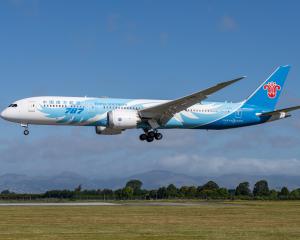Mr Cooper told about 80 shareholders in Milton yesterday that this had been achieved without shrinking the business which continued to have annual turnover of between $1.9 billion and $2 billion.
In 2007, company debt had blown out to $325 million and equity had shrunk to 25%, a legacy of the merger with Richmond.
Since then, the company has closed or decommissioned eight processing chains and sold $56 million in non-core assets.
Most of that money was spent on paying redundancies.
The company has also changed its management of inventory.
Mr Cooper said Silver Fern Farms (SFF) was also in a position to choose either to repay the $75 million in bonds which mature on December 15, or reissue them.
Chairman Eoin Garden used the meeting to stress that the beleaguered meat industry was broken and simply merging companies would not fix it.
"Structural mergers are just a band aid," he said.
A quantum change was needed in the way meat was produced, processed and presented, based on what consumers wanted - convenient, ready-to-use packaged meat.
He said New Zealand was still selling 2kg lamb leg roasts in the United Kingdom, our largest leg market, despite 70% of the product being sold as part of supermarket special discounts.
The same product was selling in New Zealand supermarkets for $12.99 a kg, but was returning three times that value for a 400-gram SFF branded ready-to-cook leg roast.
Mr Garden said the industry needed fundamental change despite what some may say.
"The view the industry model is broken is not universally held ... in the industry.
If it is not broken and dysfunctional, why then are sheep and beef farmers not profitable and why are they leaving the industry in droves?"Mr Cooper said prospects for beef, lamb and venison were all positive this coming season, due to declining numbers worldwide.
Market prices were stable but about as high as they could go, and the exchange rate would once again largely dictate returns to suppliers next season.
SFF has been trying to spread its exposure to more markets and more customers, such as reducing its reliance on Germany for venison and UK for lamb.
Mr Cooper said buyers required supply of product all year round, and while New Zealand-sourced lamb met most of that, there was still a gap in supply from July to September.
SFF and Alliance have both been looking at sourcing lamb from South America to meet those orders during our winter.
SFF was advanced in a business case which would see South American lamb supplied to New Zealand specifications to its customers in the northern hemisphere.
In response to a question, Mr Cooper said SFF had identified a potential business partner to help develop the Chinese market for high-end quality lamb cuts.
China has for 13 years been a large buyer of lower value lamb cuts, such as lamb flaps, but Mr Cooper said other partners were needed to develop markets for high value products, although he warned it would be slow and unlikely to be profitable for some time.
It was unrealistic to target the whole country, so FSS has a strategy of targeting a city with a population of about 25 million.
"We don't want to go to China, we want to go to one city in China," he said.











